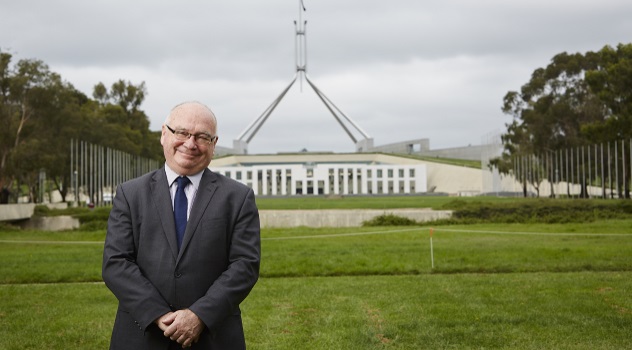We must have an independent review body for banking complaints that is administered by the business sector, preferably the small-business sector which has a greater understanding of business at the grass roots of our society.
“We have a great banking system” is a hard thing to tell the people who have lost everything, including their health, due to unconscionable and unforgivable behaviour from their bank.
In reality, the strength of Australia’s banking system – as a whole – is the envy of most other developed economies. But that does not mean it is perfect and a number of Australia’s biggest banks have demonstrated a blatant – almost immoral – disregard for the needs of their customers in recent years.
Numerous stories about farmers being forced from their land by inflexible bank practices, coupled with public controversies surrounding failed investment and insurance businesses, suggests that Australia’s banks – as individual corporations – are definitely not perfect. Indeed, the Boards have become aloof.
So, what can we do? Initiate a Royal Commission? Or maybe just sweep the litany of past consumer concerns under the corporate carpet?
Interestingly, we have a comparison case study in the Australian Tax Office (ATO), who has dealt with a similar issue. It has always been “fair game” to attack the tax office yet it is a very good tax office – one of the world’s best. But it too is not perfect.
The small number of cases where the ATO has let the tax payer down have been magnified to the point where some think the ATO has failed. In essence, its only failures were its inability to communicate better and to care better for those who have been wronged. The ATO has improved and will continue to improve, providing an example that the banks should follow.
No one should ignore or exaggerate a problem that exists and needs fixing, so let’s acknowledge we have some of the best banks and the best banking regulators (ASIC and APRA) in the world. Let’s also acknowledge they are not perfect and should be constantly looking for ways to enhance their performance by responding to the changing needs of their customers and the wider community.
The problem with the banks (at least four of them) is that they have become too big as businesses. Their boards manage the big picture very well but seem to struggle when it comes to knowing what is happening at the coal face. As a result, there is significant and increasing disconnect between the decision makers and the client.
Bank Boards and management may issue an instruction, for example, to limit lending in a certain area. Based on that instruction, the bank’s field staff will call in loans with very short notice, sometimes as little as a few days. How can a farmer, a small manufacturer or an owner driver find $100k in a few days? The stress placed on that person is unacceptable.
But this is not a big problem when we look at the overall behaviour of the banks. There are not many of these cases, perhaps a few hundred. But every one of those cases involves a human being and their family, who has had their world turned upside down without any notice. The banks create health problems, mental anguish, family breakdowns and worse. That is disgraceful if it is only one case. It must not happen.
Then we come to other issues: the high cost of credit cards, banks not passing on interest rate cuts; the insurance scams; the seemingly excessive salaries and bonuses paid to executives; the commissions paid to those in selling products; the list goes on.
Simply put these banks are huge, they are dominant. With dominance comes a high level of scrutiny and responsibility. Responsibility to communicate; to be transparent – except for the truly “business-in-confidence” issues; to inform customers with respect and compassion; to deal quickly with complaints and perceptions; and to justify behaviours, high pay rates, bonuses.
We need confidence in our banking sector because in the end, nearly every person in Australia is, or will be, a shareholder in at least one bank. This is through superannuation fund investments where we all have our retirement funds. We need banks to be profitable and stable.
There is a body that is supposed to independently deal with complaints about the finance sector. This is the Financial Ombudsman Service (FOS). It should be scrapped and reconstituted as something that is dynamic, responsive and transparent. The current FOS is none of those things.
We must have an independent review body for complaints about banks. It must be administered by the business sector, preferably the small-business sector which has a greater understanding of business at the grass roots of our society. The banks should fund this body because the fewer problems they create, the fewer funds will be needed, making for an effective incentive. This independent body must be dynamic, must respond quickly to people’s crises and must be created soon.
We don’t need a royal commission; we know the problems. Fix them












